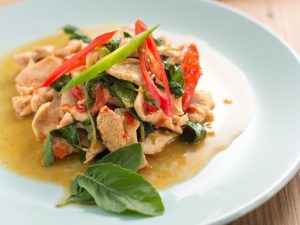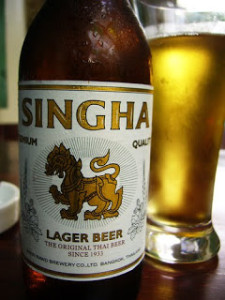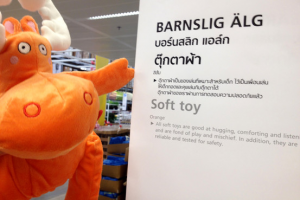The Wild Boars were released from the hospital yesterday to their families, the young Thai boys trapped in a flooded cave for over 2 weeks. They will be overjoyed to be back with their families, but they will likely be especially eager to get back to the food they love. Having suffered from hunger while in the cave, food was one of the things they tried not to think about, but which, according to notes they wrote to their families, they couldn’t help but daydream about.
The foods they craved in the cave provide insights into the tastes, at least, of young Thais. One of the dishes several boys mentioned was pad kra pao, a fried rice dish which usually served with chicken, normally quite spicy. That spiciness is a common theme across most of the dishes the boy mentioned. That even includes KFC, the US fast food chain. The menu in Thailand is quite different from that in the US (and other countries), with most of the chicken dishes being spicy.
It’s an interesting experience to visit fast food chains in different countries. I note that the “burgers” at the Thai KFC do not include any beef versions, only chicken or fish. That’s not maybe a big deal for KFC, but I visited a McDonald’s in India, curious about how beef (taboo in India) would be replaced; after all Big Macs and beef burgers are the staple of that chain – in India, too, plenty of chicken to replace beef, but also many vegetarian dishes.
A member of the KFC founder’s family, Colonel Sanders, has been in the news, defending the Colonel in accusations from the fired former CEO of Papa John’s Pizza, John Schnatter. Schnatter defended himself from accusations of racism by claiming that the Colonel himself had made racist comments, something refuted by the Colonel’s grandson, Trigg Adams



